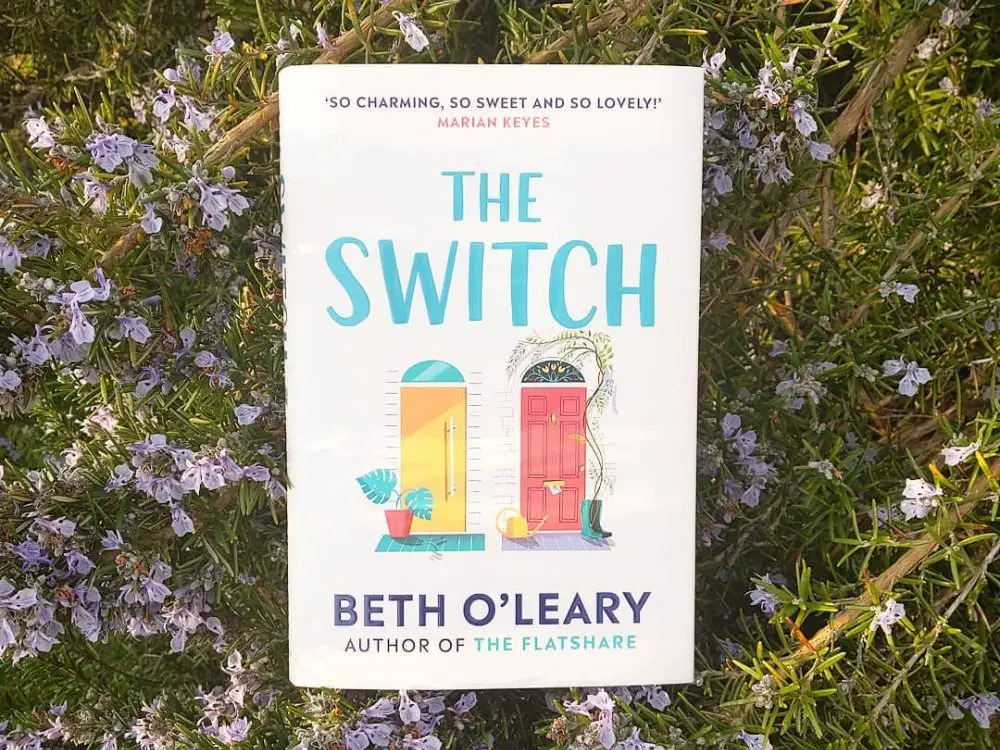In Beth O’Leary’s second novel, “The Switch,” the author embraces familial and community bonds over romantic ones — a shift in tone from the romance in her debut, “The Flatshare.” The novel’s granddaughter-grandmother pair Leena and Eileen, who double as the protagonists and narrators, are both looking for an escape from their lives; both are in a rough patch: Eileen’s husband has left her for their dance instructor, and Leena has a panic attack during an important work presentation. So, Leena proposes that they both could use a change of pace. They decide to switch places; Eileen will get away from her tiny town of Hamleigh with its unrelenting gossip and minuscule population, and Leena will enjoy her two-month sabbatical away from London’s crowds.
By throwing these characters into situations that are the polar opposite of their normal lives, O’Leary gives readers the perfect chance to understand them at their core. Leena is faced with organizing Hamleigh’s May Day festival, reconciling with her mother after the death of her sister and handling a long-distance relationship with her workaholic boyfriend. Despite these stressors, she is attempting to decompress, which she is obviously not great at. But as she spends more time in her grandmother’s community and with her thoughts, O’Leary reveals a softer side of the character: someone who is talented, stubborn and honest just as much as she is overworked and anxious.
One of the biggest strengths in Leena’s half of the story is her interactions and connections with the people of Hamleigh as she becomes more involved, providing a greater sense of community throughout the novel. Though, as much as Leena is a well-developed and interesting character, her grandmother steals the show.
From the moment Eileen is introduced as she struggles to open a jar by herself, she draws readers in through her personality and narration style. “I give the jar a good glare and myself a good talking-to. I am a seventy-nine-year-old woman. I have given birth. I have chained myself to a bulldozer to save a forest . . . I can open this wretched jar of pasta sauce.” Her character is overall more developed than her granddaughter’s, creating the impression that O’Leary had more fun writing from Eileen’s perspective than Leena’s. It certainly seems this way throughout the novel as Leena’s chapters seem stagnant compared to Eileen’s, which feel as exciting and colorful as exploring a new city in springtime.
“The Switch” is able to build a strong cast of characters in both stories, breathing life into and rounding out the worlds O’Leary creates. Leena’s friends and roommates in London become an integral part of Eileen’s adventure in the city, helping her navigate online dating and event planning, among other things. O’Leary develops each secondary character with care and purpose so that they not only contribute to her narrators’ stories but live as the main character in their own story.
As its secondary characters are weaved into the primary storylines, rooting for them feels as natural as rooting for Eileen and Leena themselves. Leena’s efforts to help Eileen’s friend Betsy leave her emotionally abusive husband not only offer more insight into Hamleigh’s community but give readers a look into Leena’s stubbornness and good heart. Simultaneously, Eileen’s attempts to help Leena’s roommates and coworker demonstrate how much her granddaughter has learned from her. But the members of Eileen’s community do not exist solely to help Leena achieve her happily-ever-after, nor do Leena’s for Eileen.
“The Switch” has its fair amount of charm and brightness balanced with heartbreak and loss that O’Leary first provided with “The Flatshare.” While “The Flatshare” had a relatively small main cast, “The Switch” embraces its ensemble for a deeper sense of community. As Eileen struggles with finding herself outside of a romantic relationship while still searching for companionship and Leena works to get control over her anxiety and grief after her sister’s passing, the two are also experiencing life in a way that shows them how much is out in the world for them. But unlike “The Flatshare,” O’Leary’s second novel seems to be feeling the pressure of the expectations set by her phenomenal debut. “The Switch” is very different from “The Flatshare,” from its premise to characters to plot structure, but in terms of overall impact, O’Leary’s debut wins by a landslide. In “The Switch,” she attempts to balance much more than she has before, which often feels as if she took on too much.
While almost every plot line in the novel suffers at least slightly from this overload, the one that takes the hardest hit is that of Leena’s romantic relationships. On top of her struggles with her mental health, career, relationship with her mother and efforts to help Eileen’s town, her boyfriend and new love interest feel unnecessary. The initial intention may have been to give Leena a complete change by the end of the story, but it instead feels unrelenting instead of satisfying. O’Leary’s plan to incorporate romance into “The Switch” is understandable, but it ultimately falls short in Leena’s story. Eileen’s romance is more central to her story as she attempts to start dating after her divorce, which contributes more to her character arc and overall story than in Leena’s case. Even so, both iterations of this plot line seem to be grasping at what made O’Leary’s first novel so well-loved rather than carving new space for “The Switch.”
Although it struggles in smaller ways throughout its entirety, where “The Switch” truly falls flat is in its plot pacing and structure. O’Leary is able to build out her world and develop characters steadily in the first 100 pages, but instead of continuing to grow the story at the same pace, the plot plateaus in the middle of the novel. The characters move forward at a sluggish tempo with only small actions propelling the story to its climax, which itself isn’t distinctive until the reader reaches the end of the story and looks back. O’Leary’s writing feels slightly stuck, as though the journey to the story’s end is just meant to get her reader to the big moments instead of giving it strength and impact as a whole. Even though it doesn’t come to a complete stop, it does lack the ease and flow of O’Leary’s debut that made it so memorable.
“The Switch,” although lacking in many ways, is a love story at its heart. It’s just not one of romantic love; O’Leary presents a story that showcases familial bonds through Leena and Eileen, who share so much more than a name as they live each other’s lives. The strength of the idea and execution might be uneven, but O’Leary is still a new writer who will hopefully grow and improve with her third novel. “The Switch” might not be her best work — following “The Flatshare” was always going to be difficult — but she’s proven that she still has meaningful ideas to say and stories to tell.

















